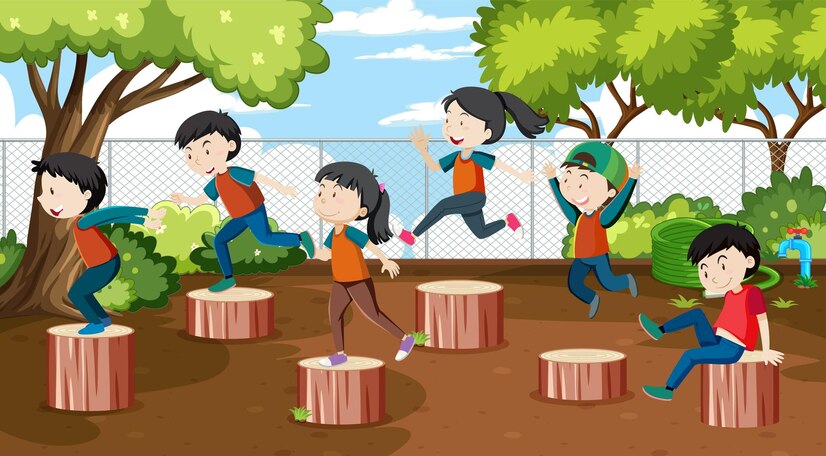Introduction : Preschool Development
Outdoor education is becoming an increasingly important part of preschool programs, as educators recognize the value of nature-based learning. Spending time outside not only improves physical health but also supports cognitive and social development. In this blog, we’ll explore how outdoor education contributes to preschool development and why it should be a core component of early childhood education.
1. Enhancing Physical Development Through Outdoor Play
Outdoor play is crucial for developing motor skills and promoting overall physical health.
- Gross Motor Skills: Running, climbing, jumping, and balancing are all activities that develop gross motor skills. When preschoolers spend time outside, they engage in physical activities that improve their coordination, strength, and endurance.
- Fine Motor Skills: Outdoor activities like picking up leaves, drawing with chalk, or digging in the sand also help develop fine motor skills. These skills are important for tasks like writing and manipulating small objects.
2. Encouraging Exploration and Curiosity
Nature provides endless opportunities for exploration and learning.
- Learning About the Environment: When children spend time outside, they have the chance to observe plants, animals, and the changing seasons. This hands-on exploration encourages curiosity and fosters a love for learning about the natural world.
- Problem-Solving and Critical Thinking: Outdoor environments are full of challenges, from figuring out how to climb a tree to working together to build a sandcastle. These activities promote problem-solving, teamwork, and creative thinking.
3. Supporting Social Interaction and Emotional Well-Being
Outdoor play allows preschoolers to interact with peers in a more open and relaxed environment.
- Building Friendships: Group activities like playing tag, building forts, or going on nature walks help children develop social skills. They learn how to cooperate, share, and resolve conflicts, which are important for building friendships.
- Emotional Benefits: Spending time in nature has been shown to reduce stress and anxiety in children. Outdoor play gives preschoolers an opportunity to relax, have fun, and release energy, which promotes emotional well-being.
4. Connecting Outdoor Learning to the Classroom
Many preschools integrate outdoor learning with indoor classroom activities.
- Science and Nature Studies: Teachers can connect outdoor experiences to classroom lessons by discussing topics like weather, plants, or animals. For example, after a nature walk, children might draw pictures of the things they saw or read books about insects.
- Creative Expression: Outdoor environments also inspire creativity. Children may be encouraged to use natural materials like leaves, stones, or sticks in art projects, helping them connect with nature in a meaningful way.
Conclusion
Outdoor education is an essential part of preschool development, offering numerous benefits for physical, cognitive, and social growth. By incorporating outdoor play and nature-based learning into preschool programs, educators can support a child’s holistic development and foster a love for the natural world. Parents can also encourage outdoor exploration at home to enhance their child’s development.


2 thoughts on “The Role of Outdoor Education in Preschool Development”